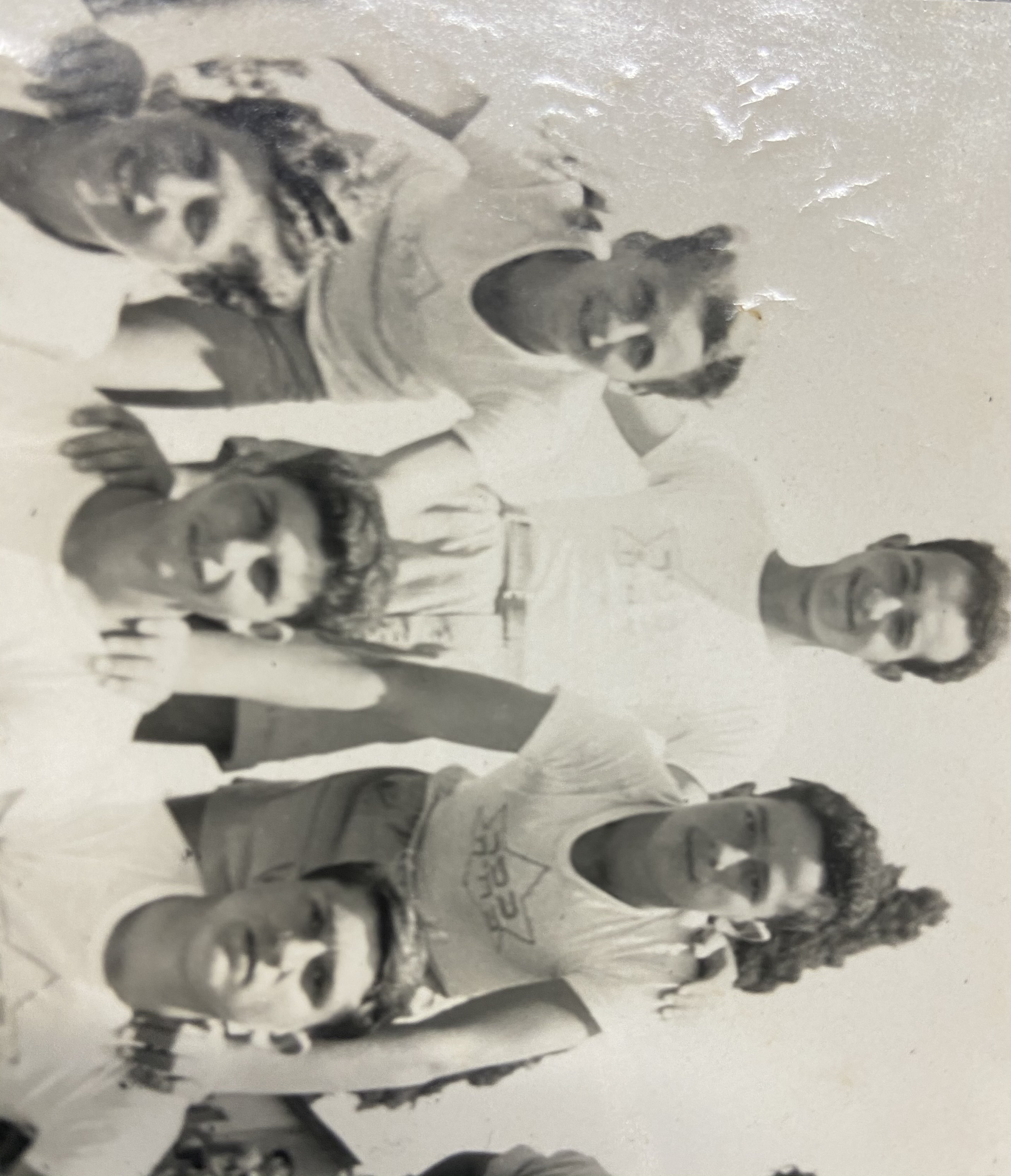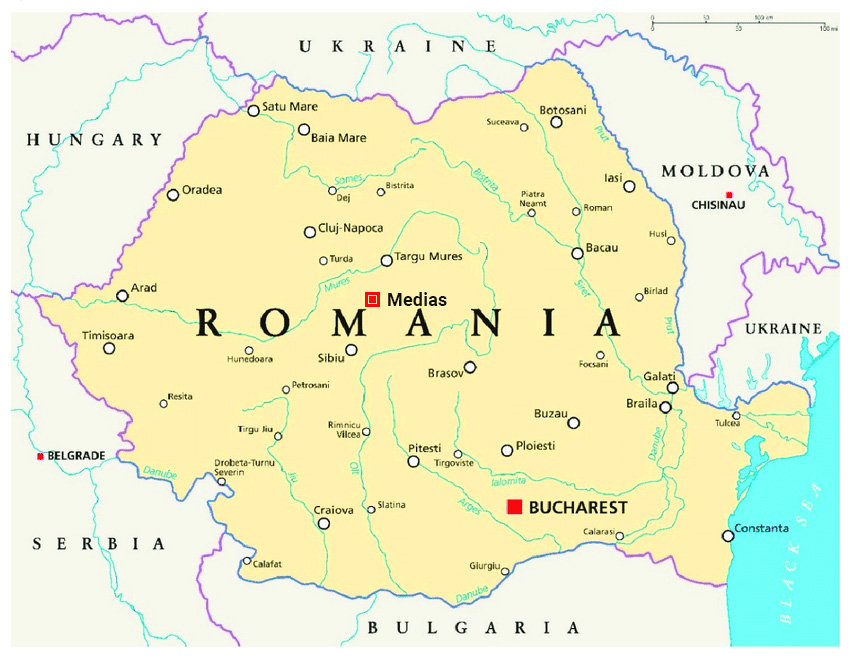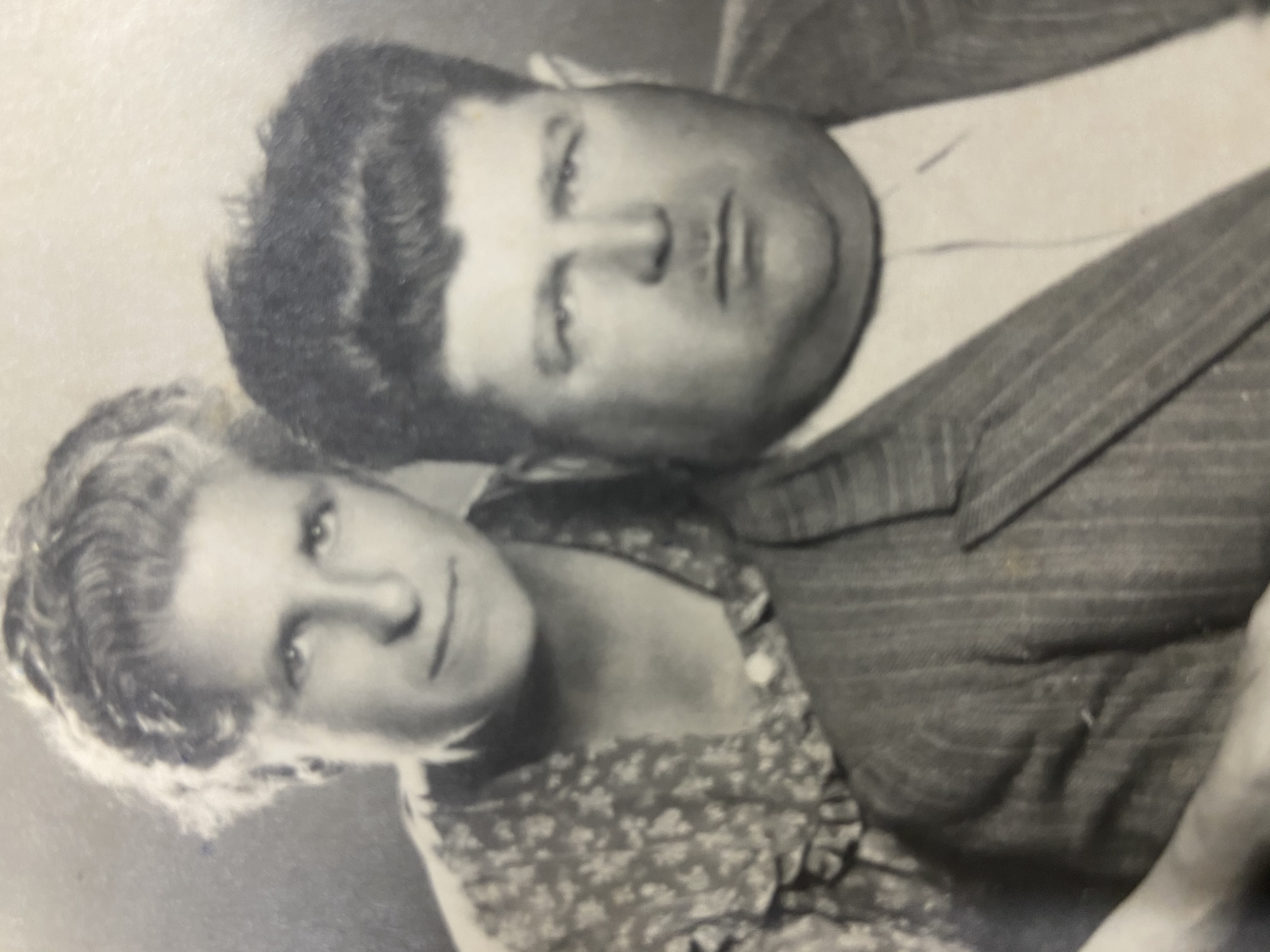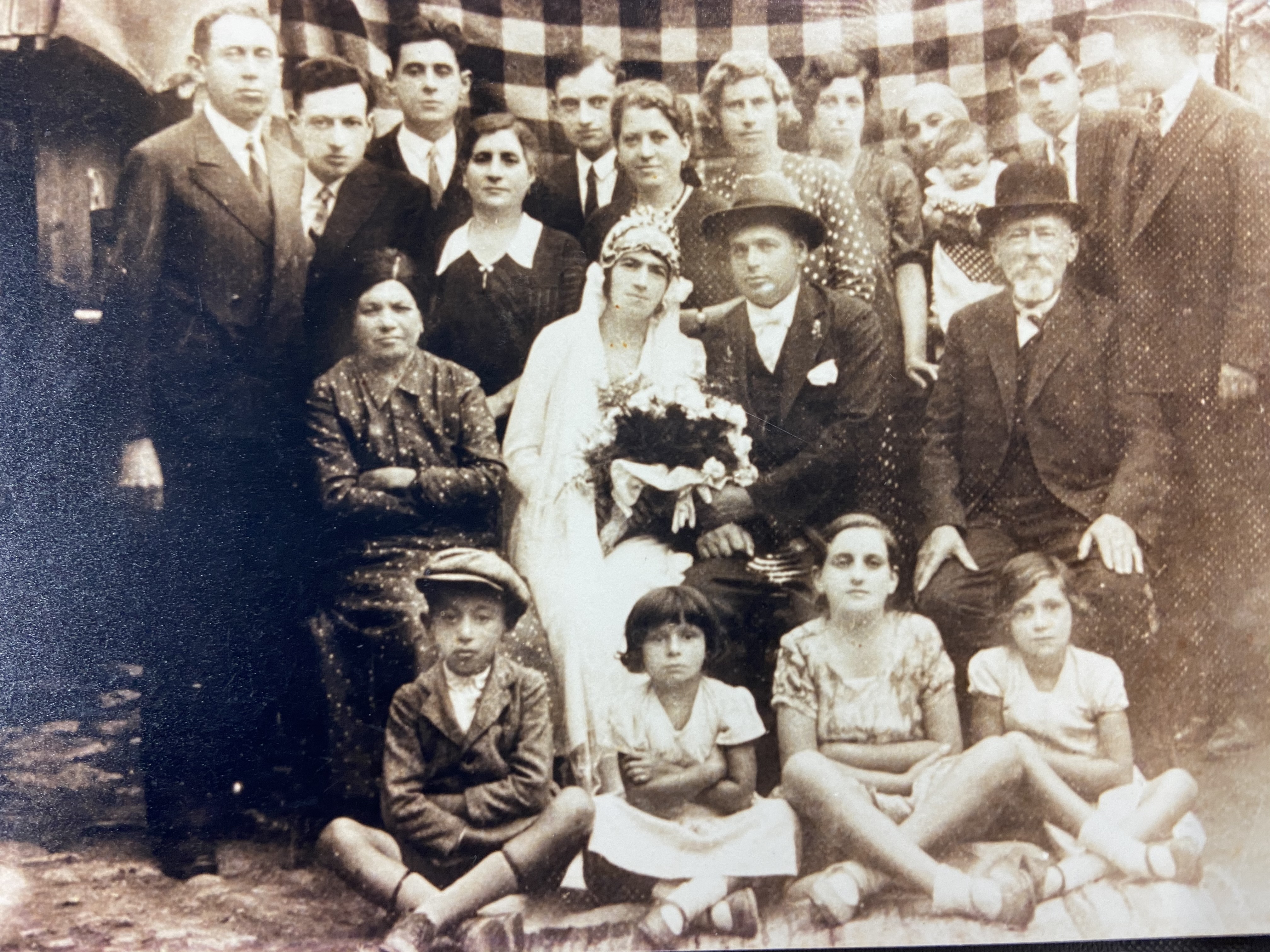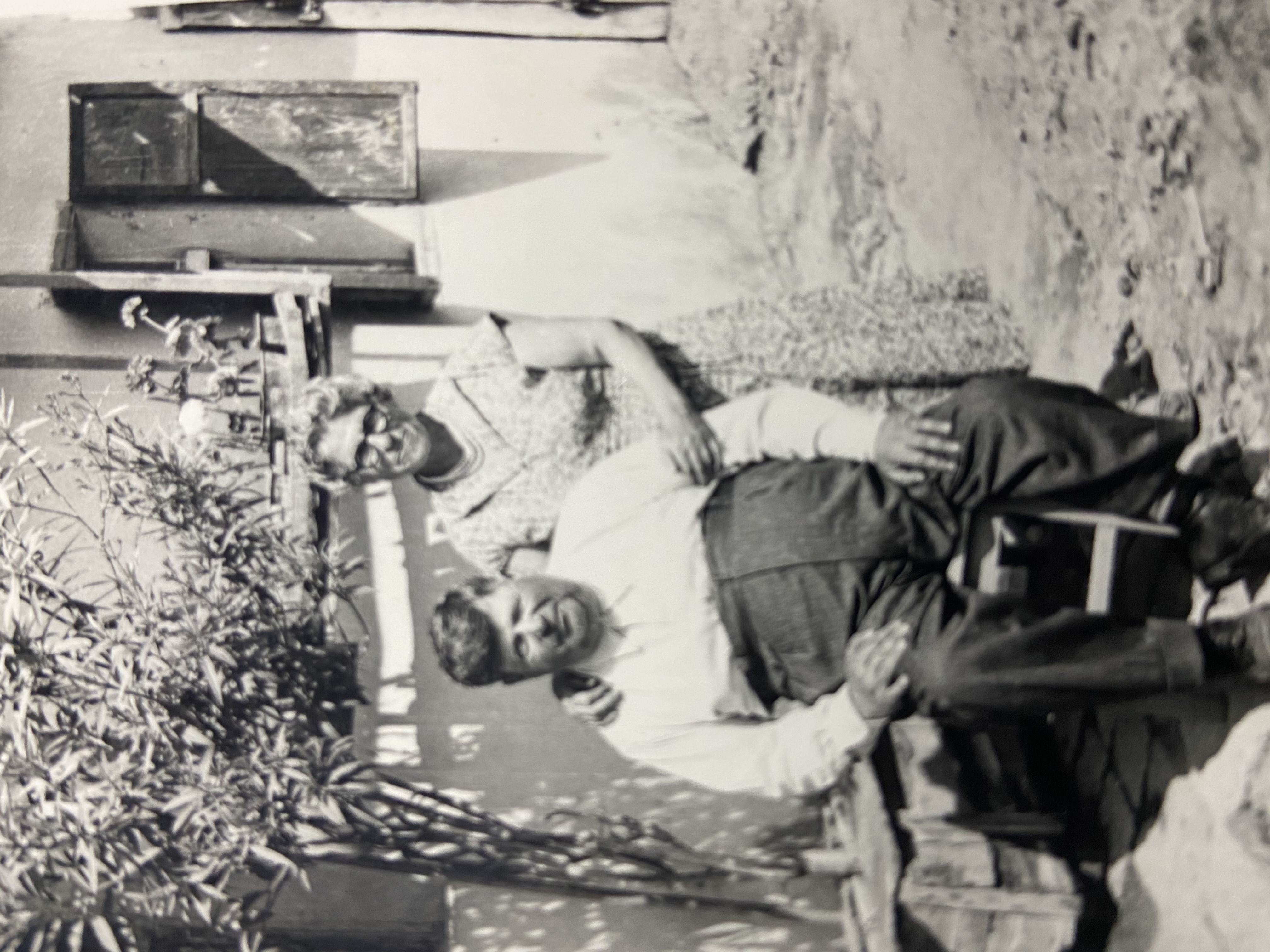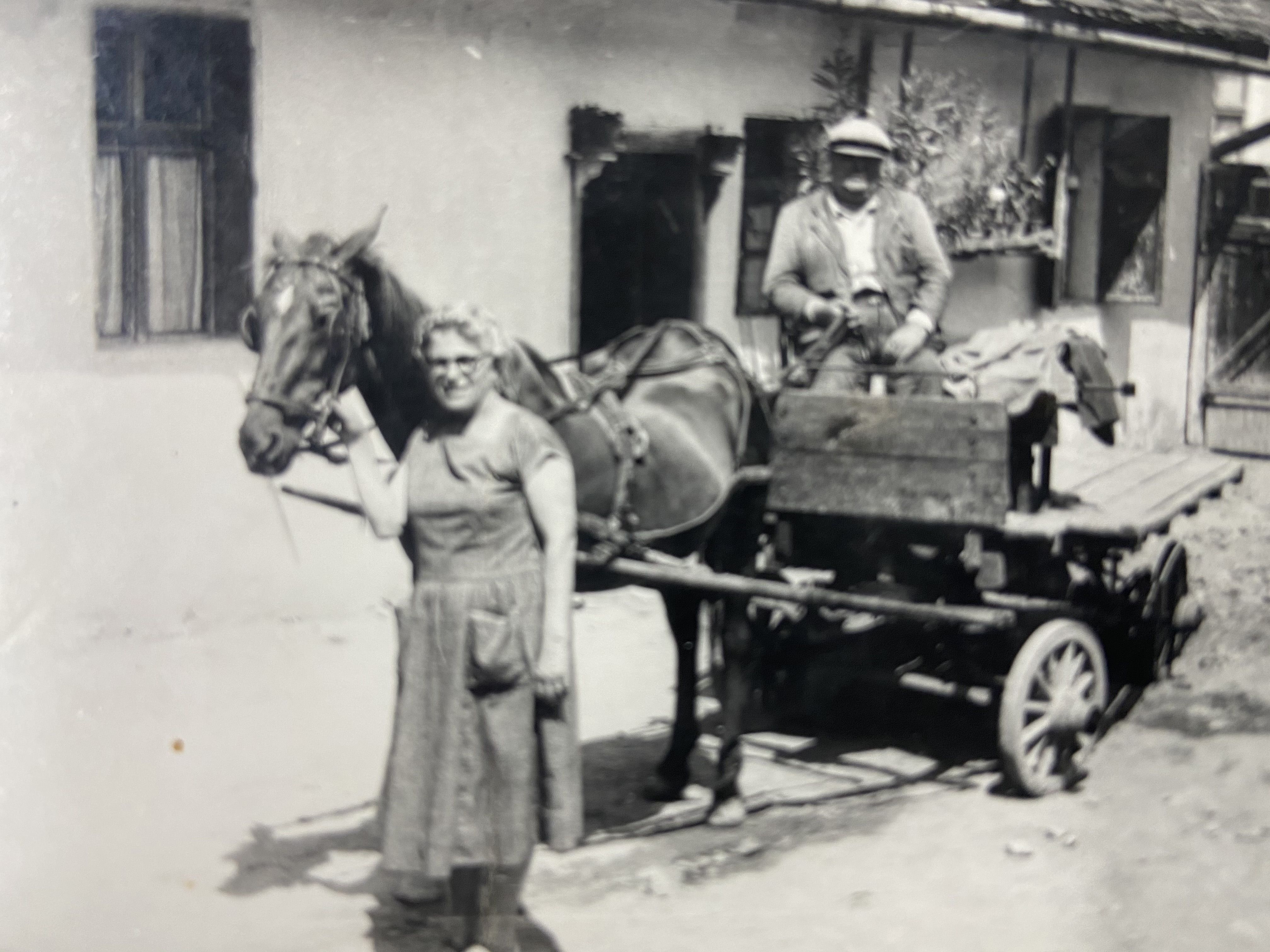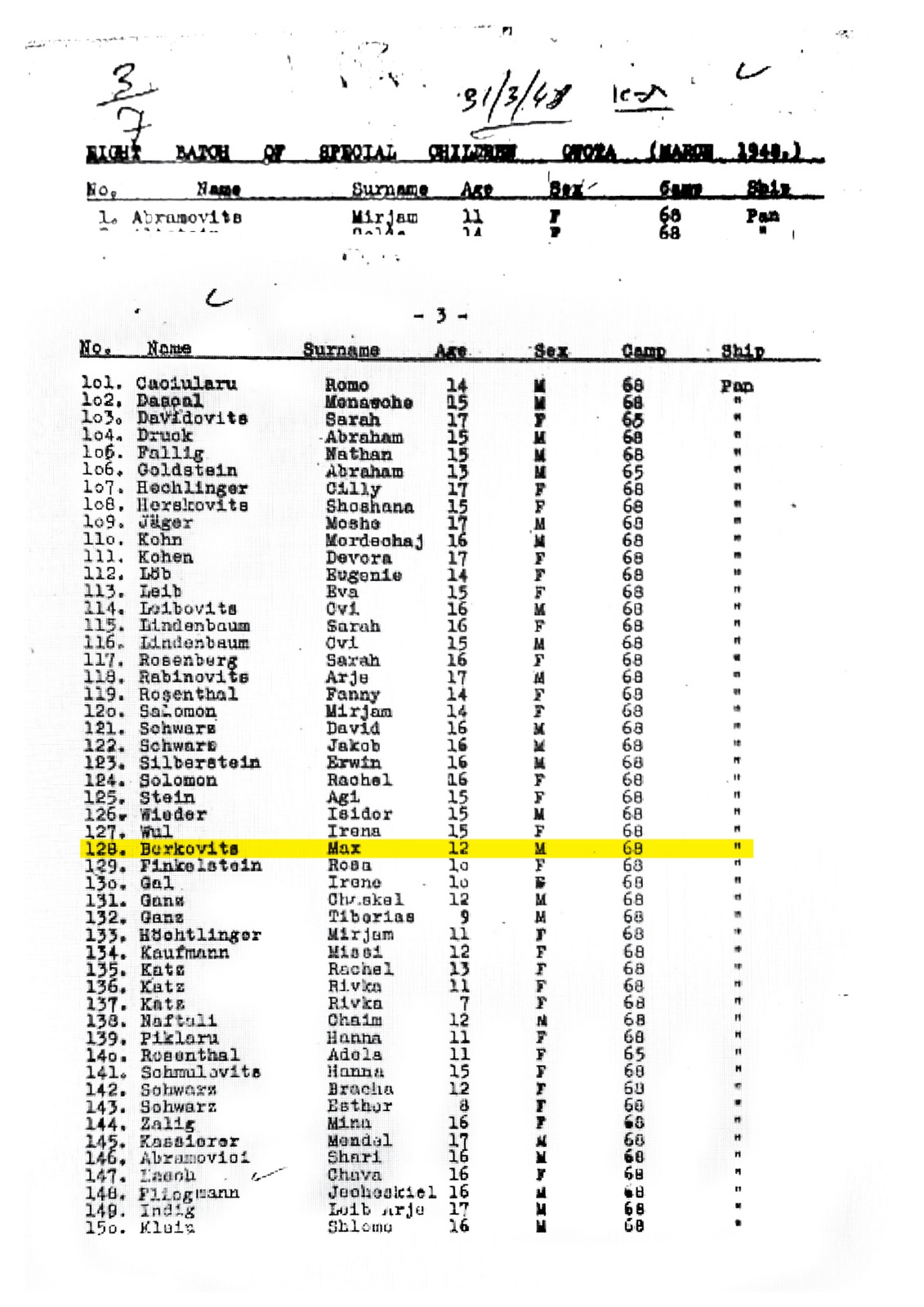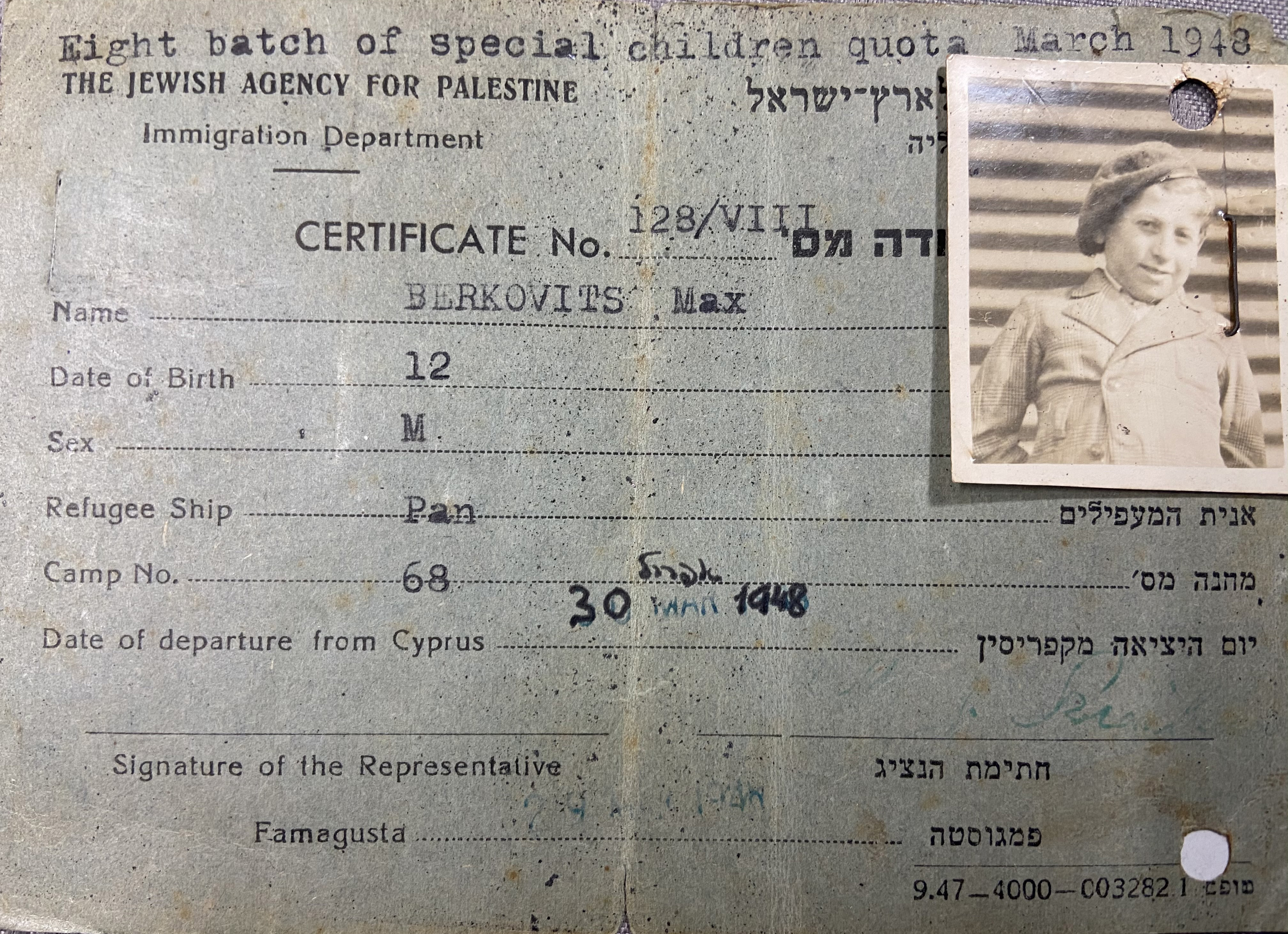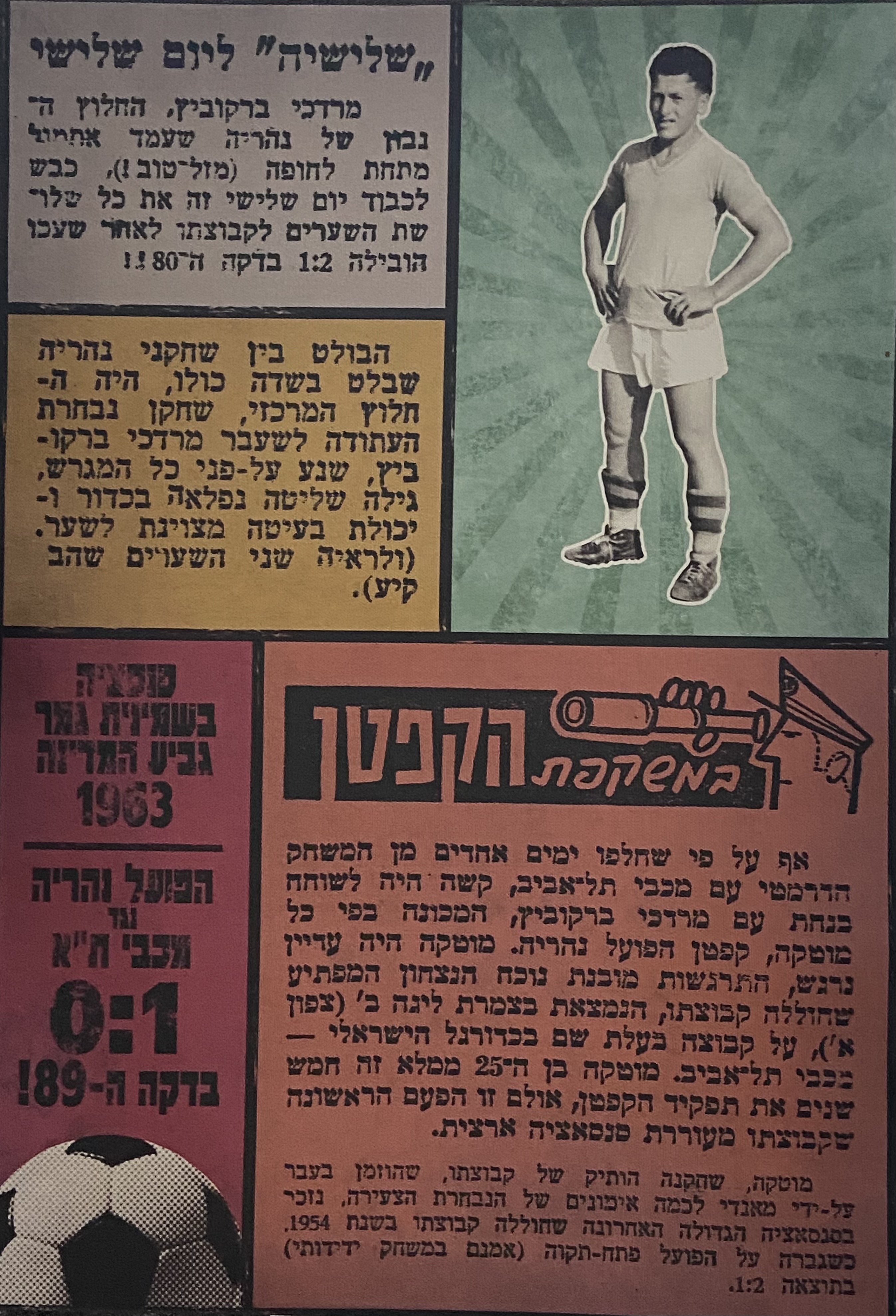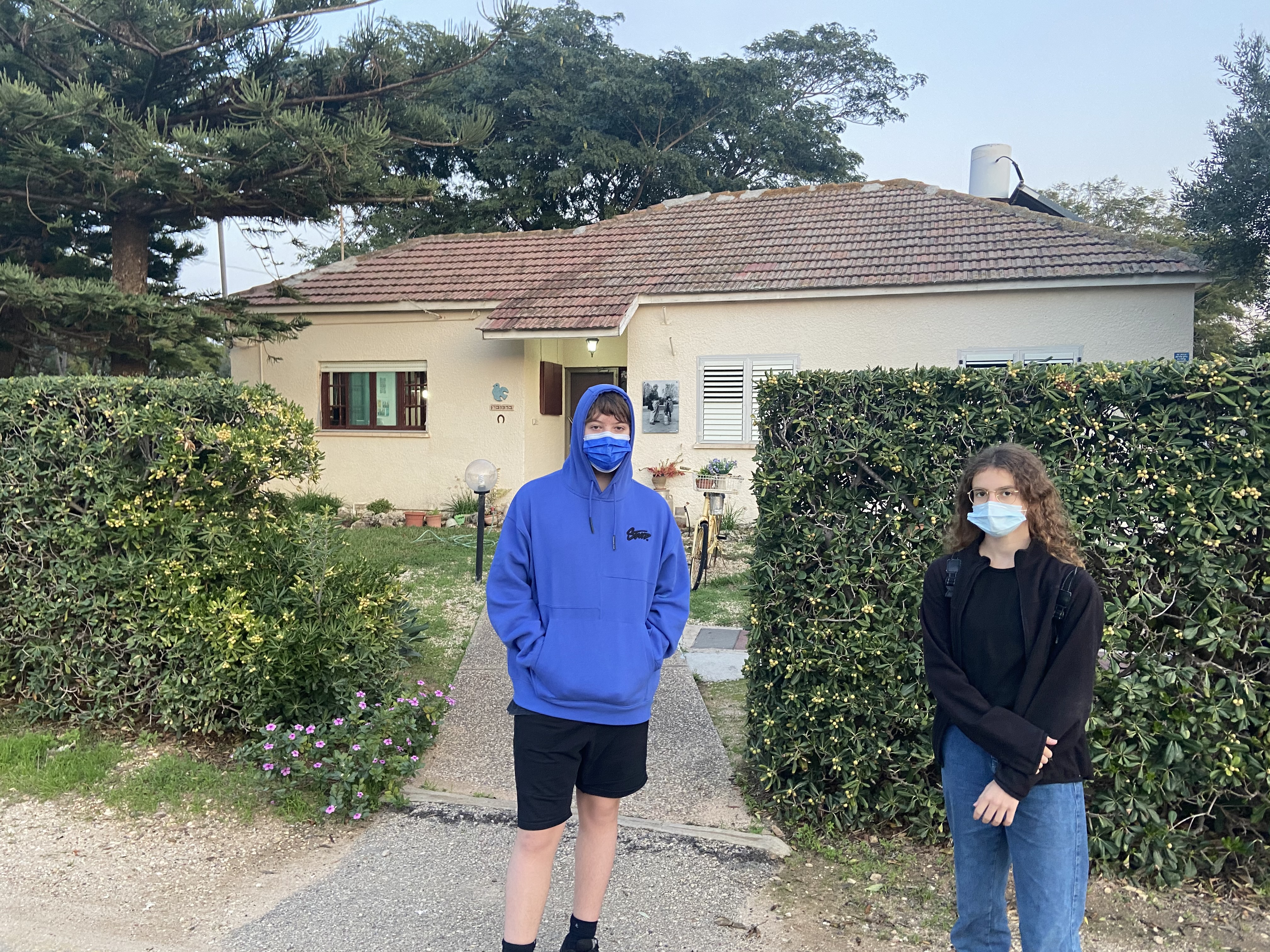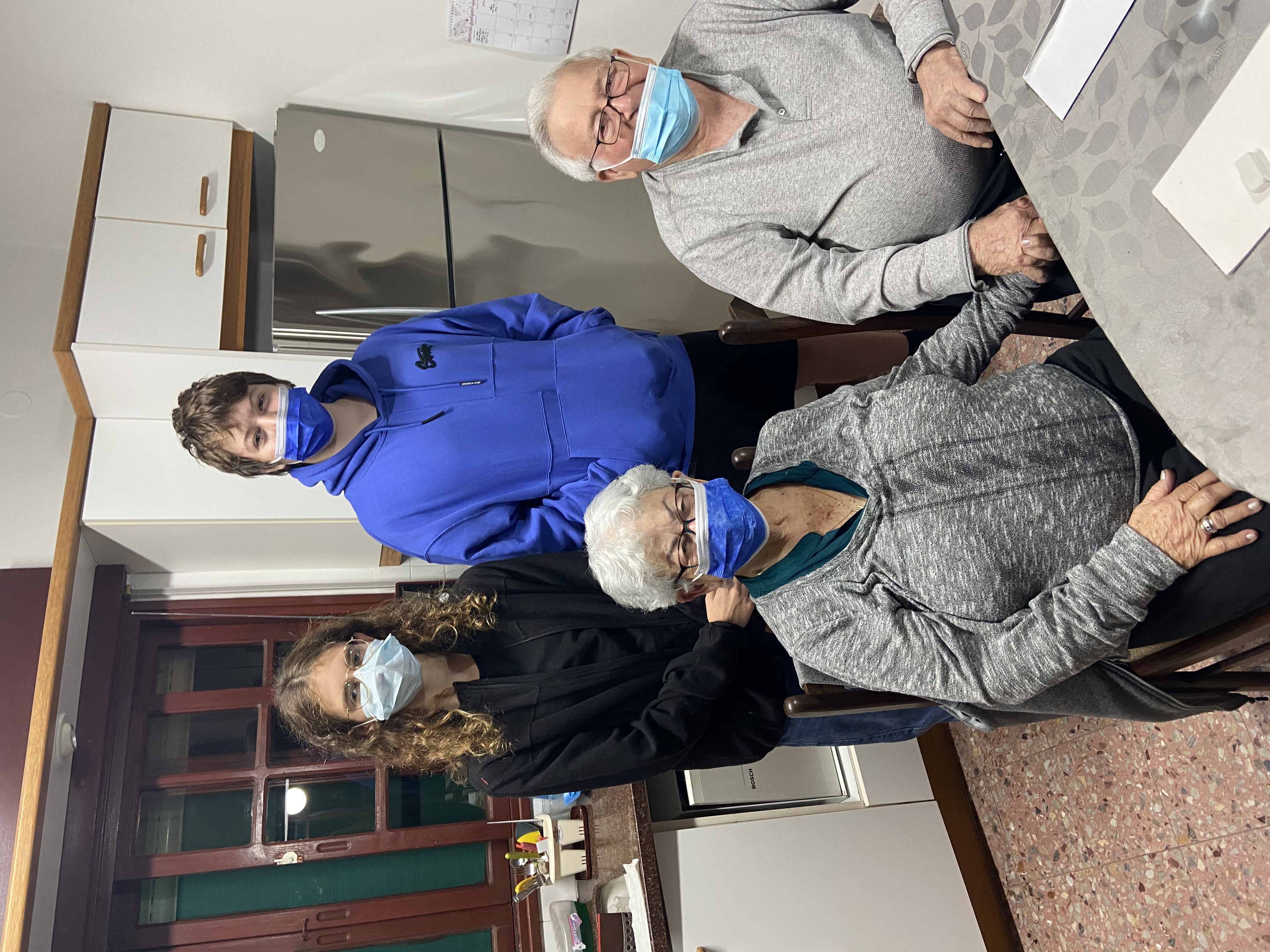Mordechai Berkowiz was born in 1936 to Avraham and Sarah Berkowiz in the city of Medias in Transylvania, Romania. His older brother was Katriel.
Grandfather Moshe lived with the nuclear family, too, and because Moshe was a very pious Jew, he made sure that the atmosphere in the house was religious, centering on Torah observance and the performance of mitzvot. Mordechai lost his mother when he was very young and he has almost no memory of her. Soon after Sarah's death, his father remarried. His new wife, Margarita, became Mordechai and Katriel's stepmother.
Mordechai's father was a carriage driver and owned horses. When Avraham grew older, he began to suffer a slight disability and, as a result, Mordechai and his brother were responsible for stabling the horses every evening. That, remembers Mordechai, was "one of the things I would wait for all day".
Most of World War II passed over Mordechai and his family relatively quietly, but in 1945, when Mordechai was nine years old, the Nazis began to approach Medias and it was feared that if Mordechai and his family stayed, they would be captured by the Nazis and sent to the extermination camps. Mordechai, his brother, his father and his grandfather fled for their lives towards the Soviet Union. His mother and aunt stayed in their hometown because Margarita was very ill and could not join the escape. Her sister (the boys' aunt) insisted on staying and helping her.
Mordechai says that he remembers the eve of the escape: "We started walking until we got very close to the Soviet battle line. We managed to find and rent a place belonging to one of the farmers there. With the little money we had brought, we stayed there for several days until the Soviet army conquered the area, bypassing the farm and moving towards Romania."
"I really remember the day we first saw the soldiers of the Soviet Union," says Mordechai. "I saw them replacing their tired horses with the fresh horses that were on the farm. Something else that happened that night and really scared me was that the soldiers searched the clothing of my grandfather. They found his expensive pocket watch and forcibly took it from him”. Later, when the Soviets advanced and captured Medias, they returned home. "I was lucky: we only experienced the end of the war," Mordechai notes. Following World War II, his father decided to immigrate to Eretz Israel, but due to the high payment involved (submitting immigration permits, etc.), it was decided that Mordechai and Katriel would immigrate first and the rest of the family would join them later. In fact, Avraham and Margarita immigrated to Israel only in 1962. And so, together with other groups of children and individual families, mainly from the religious sector, Mordechai and Katriel began their journey to Eretz Israel.
Mordechai remembers it well: "At first we were transported by freight trains. Those trains were made up of wagons designed to transport animals to Bucharest, but due to the end of the war and the shortages that prevailed in Europe there was no choice, so they used these trains to transport people. As a child, I remember the scary experience, to run away as a child, without any adult around. There were so many nights I cried. The only thing that sustained me and gave me strength was that at least my big brother Katriel was with me."
Mordechai continues, "When we arrived in Bucharest, we were put on an illegal immigrant ship called "Independence". We were so many people on a small ship! One of the things I remember most was that when we left my parents' house they gave us some food for the long journey, including a jar of honey. During the voyage, I got sick. I was nauseous all the time. That honey saved me and helped me feel better and ease the difficult trip. After a few days at sea, when we had almost arrived in Israel, we were captured by the British. They surrounded our ship and didn’t let us dock. They turned our ship around and sent us to Cyprus. It was so frustrating! Only three months later, did we get permission from the British to immigrate to Israel."
In Israel, Mordechai was educated at the agricultural institution in Kfar Batya, where he also discovered his love for sports in general and soccer in particular. He studied there until he turned 17 and then moved to Shavei Zion, where his brother Katriel was living. Mordechai explains that Shavei Zion was a religious moshav from its founding and, so, was very similar to the atmosphere in which he grew up. Mordechai adapted well and soon he even started playing professional soccer – very sucessfully – for the Hapoel Nahariya team.
At that time, Mordechai met Hava Lemberger, the first child born in the moshav Shavei Zion.
Later, they married and started a family. Today, Mordechai lives happily with Hava in the moshav, enjoying the family they raised. Recently, one of the couple's grandsons was married.
